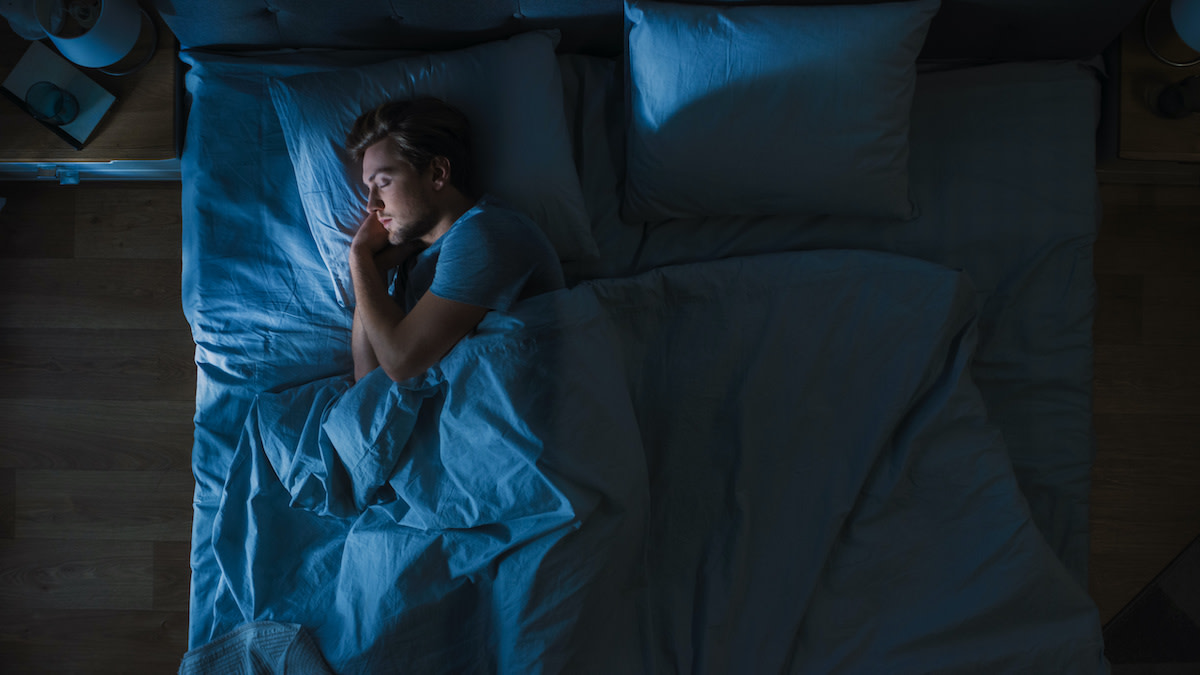How to Fall Asleep Fast: 10 Tips for Falling Asleep Quickly
Written by MasterClass
Last updated: Jun 7, 2021 • 3 min read
Our bodies follow a natural circadian rhythm that causes us to enter a sleep cycle every 24 hours. The body naturally promotes sleep onset when it releases chemicals like melatonin and adenosine. Yet for some people, falling asleep can be difficult. If you struggle with insomnia or experience more mild issues—like an overactive mind that keeps you from slipping into a restful sleep—there are steps you can take to more easily fall asleep.
Learn From the Best
10 Tips for Falling Asleep Quickly
You can take proactive steps to combat sleeplessness and improve overall sleep quality. Consider these ways to naturally wind down and enter a sleep cycle.
- 1. Maintain a steady sleep schedule. The human body responds well to a regular schedule. If you go to sleep at the same time every night, you can program your body's internal clock to exhibit sleepiness around the same time every single day. If napping is part of your regular sleep schedule, try to schedule your naps at the same time each day.
- 2. Develop a bedtime routine. Ritual can lead to better sleep. Try doing the same thing at bedtime every night. This might involve taking a bath, drinking hot tea, or listening to relaxing music. You can train your body to associate bedtime rituals with sleep onset.
- 3. Lower the temperature of your bedroom. A nighttime room temperature of 60 to 67 degrees Fahrenheit is optimal for sleep. A lower room temperature leads to a lower body temperature, which signals to your brain that it’s time to sleep.
- 4. Play relaxing sounds. Try calming your nervous system by playing tranquil sounds such as soft music or nature sounds in the leadup to bedtime, and use white noise to block outside sounds that might disturb your sleep.
- 5. Limit use of electronic devices before bed. Exposure to light—particularly the blue light emitted by electronic displays—can disrupt the body's sleep-wake cycle. To address sleep problems head on, limit the use of electronic devices before bed—or at the very least use a blue light filter after sundown.
- 6. Try aromatherapy. Aromatherapy, the use of aromatic plant extracts and essential oils to promote wellbeing, can lead to feelings of relaxation, which in turn can lead to drowsiness and sleep.
- 7. Practice mindful relaxation techniques. A bedtime ritual of deep breathing exercises and slow exhales can promote progressive muscle relaxation. Add to these breathing techniques by visualizing a relaxing scene. Mindfulness and visualization can eliminate tension while allowing the body to drift from wakefulness into unconsciousness.
- 8. Strategically schedule physical activity. Daily exercise can promote overall well-being and productive deep sleep. Yet when you schedule exercise too close to bedtime, it can lead to sleep deprivation. Your body needs time to cool down from robust physical activity. Schedule major exercise for the morning, which can charge your energy levels for your daily tasks.
- 9. Try natural sleep aids. Natural sleep aids such as melatonin are available as an over-the-counter medication in most drug stores. Taking melatonin can hasten the onset of sleep without interfering with the natural processes of REM sleep and non-REM sleep.
- 10. Monitor your health conditions. Certain medical conditions, like sleep apnea and restless leg syndrome, can impair sleep onset and deprive you of many hours of sleep over the course of the night. Seek medical advice for such conditions, and work with your healthcare provider to develop treatment and coping strategies.
Want to Learn More About Catching Those Elusive Zs?
Saw some of the best darn logs of your life with a MasterClass Annual Membership and exclusive instructional videos from Dr. Matthew Walker, the author of Why We Sleep and the founder-director of the Center for Human Sleep Science at the University of California, Berkeley. Between Matthew’s tips for optimal snoozing and info on discovering your body’s ideal rhythms, you’ll be sleeping more deeply in no time.
